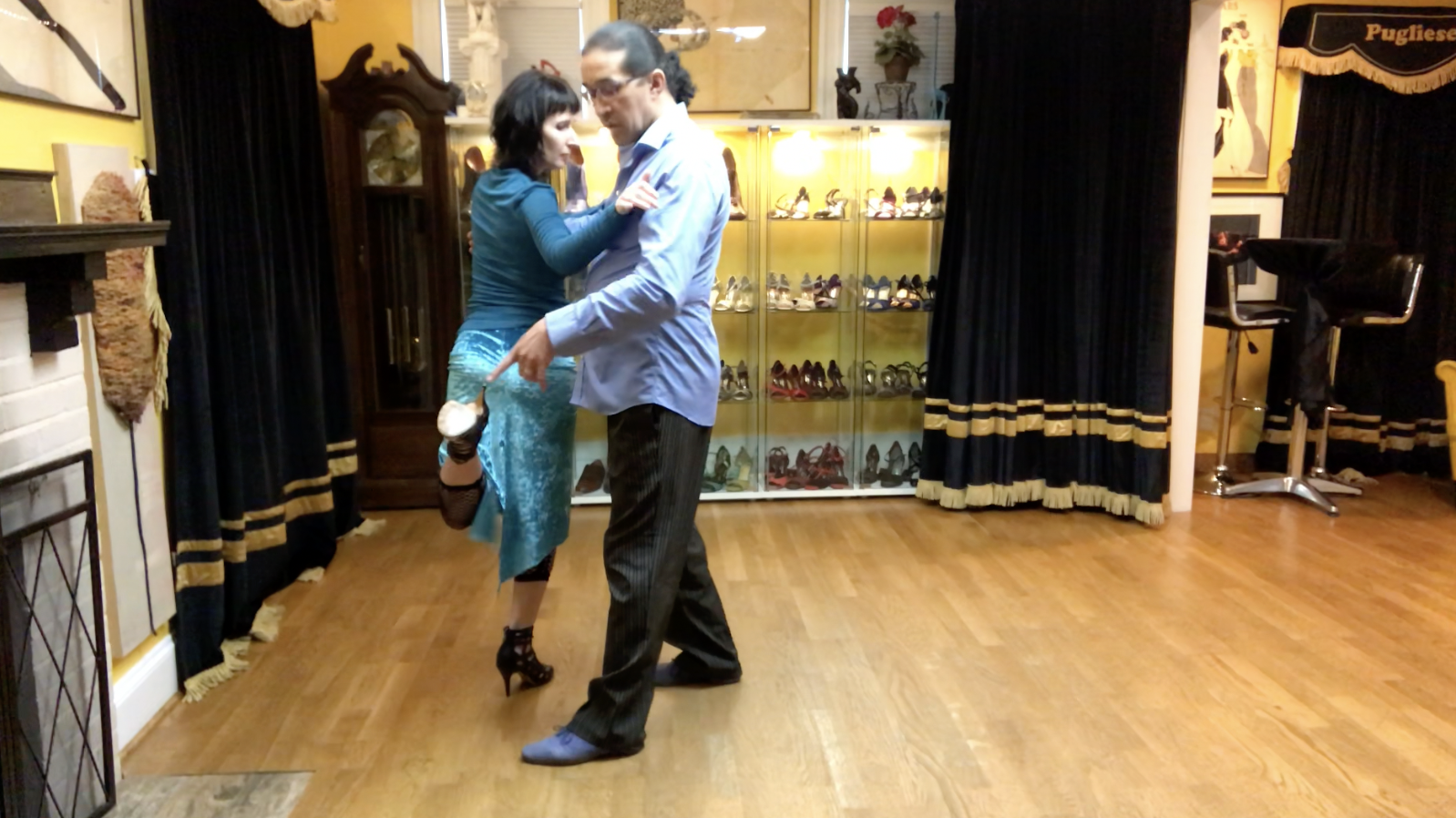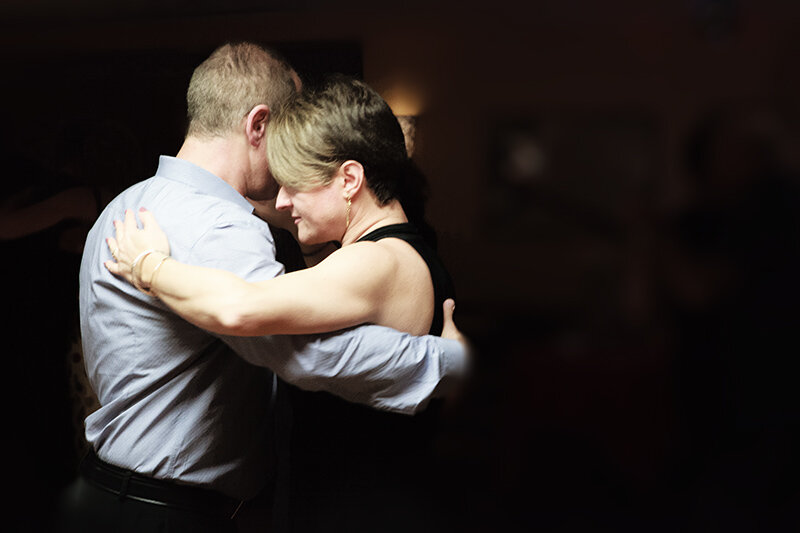In the sphere of Argentine tango, Newton’s Third Law can very much apply to the interactions shared by both leaders and followers, wherein each one gives and receives “force.” However, this term should not be mistaken as having the intention to coerce or intimidate. Rather, the concept of “force” in Argentine tango simply translates to the leader’s suggestion or proposal to execute a move and a follower’s response in favor of or in opposition to that suggestion. This dynamic, while applicable to many steps and counterpositions, may be best exemplified by the boleo.
Boleo is a beautiful figure, BUT… Remember a couple of things - Tango is created by two - Leader and Follower. Follower shall use the brain and know better NOT TO execute the high boleo, even if lead, in the crowded Milongas. The leader shall use his smarts to NOT TO lead it, or lead it in a way that does not pose the danger to other couples, or at least have an understanding of WHY the Follower refused the boleo
Read MoreThe team (in the case of Argentine Tango - the couple) needs to fully understand the overarching strategy. WHERE are we going and WHAT are we trying to achieve. Then the HOW becomes the tactic, a small step that is easy to execute once understood and agreed upon the common goal.
Read MoreLooking at the translation, “Por Una Cabeza” is a song that compares one’s addiction to horse racing to an addiction to women. It talks about how the man, from whom the song’s perspective is based, is constantly beleaguered by his enchantment of different women whose passing glances and momentary displays of supposed affection are enough to make him swoon and “gamble” away his love.
Read MoreThe prevalence of high heels in fashion, as well as in intimate dances like the Argentine tango, has often been associated with female sexuality.
Read MoreThis popular notion is largely based on the theory that this specific type of footwear holds a measure of transformative power that could affect a woman’s level of attractiveness, much in the same way dancing the Argentine tango could evoke feelings of being desirable.
Although it is common knowledge that dancing has mood-enhancing benefits, increases serotonin and cognitive functions, and reduces stress levels – this is particularly true for the combination of Tango music and partnered dancing. It delicately reveals personal emotional and physical challenges while cultivating intense awareness that has a therapeutic effect and improves people’s emotional state (Bongard & Kreutz, 2009).
Read MoreWhen you finally brave into the world of online courses you may discover that they actually work pretty well. Especially if you have a partner ready and willing or if you yourself love to work toward continuous improvement.
There is a scary moment of starting where you have to navigate through the unknown labyrinth of registration, choosing the course, and then figuring out what to click and how to access the content.
Read More






